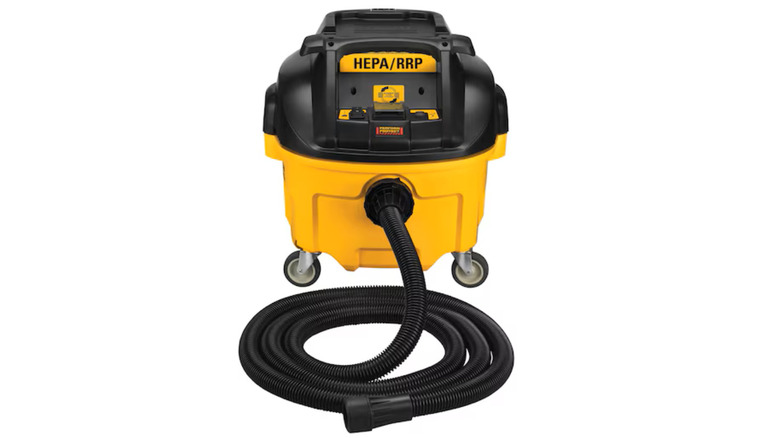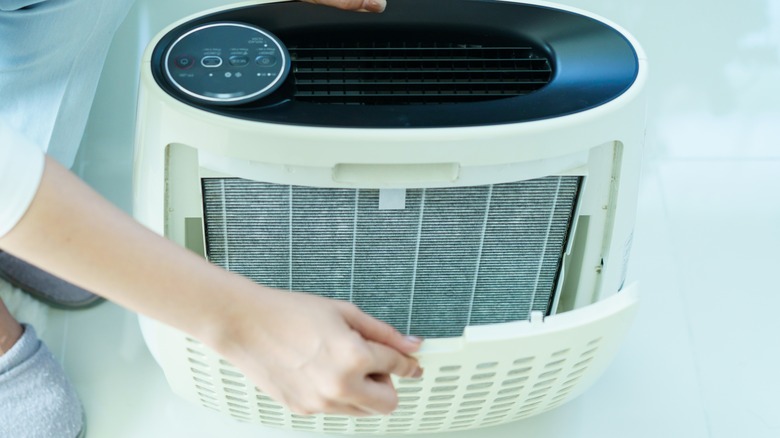Do DeWalt's Vacuums Come With HEPA-Rated Filters?
We may receive a commission on purchases made from links.
Stanley Black & Decker-owned DeWalt's selection of reliable tools makes the brand a popular choice for DIYers and pros alike. Among the company's highly-rated lineup is its variety of vacuums and dust extractors, which are built to keep your workspace, or your jobsite, free from dust. The company is considered one of the best brands for shop vacuums, but only two of the brand's offerings come equipped with High Efficiency Particulate Air (HEPA) filters. These are the DeWalt 20V Max 1/2 gallon wet/dry portable vac and the 20V Max cordless wet-dry vac, both of which come with HEPA-rated wet-dry filter traps.
Several, but not all, of DeWalt's dust extractors also come with HEPA filters, including the 10-gallon wet-dry model. There's also an 8-gallon version of that model, and a regular 10-gallon version not rated for wet work. If you're working with a 1-1/8 inch DeWalt SDS rotary hammer, you can also get an onboard HEPA-rated dust extractor that attaches to the tool itself.
While vacuums and dust extractors appear to do the same thing, they're actually designed for two different purposes. Vacuums utilize small hoses with strong suction for specific cleanup tasks, while dust extractors are built to manage air quality across wide spaces. They do that by moving large bursts of air at low pressure, removing airborne particles before they spread.
How HEPA filters keep workplaces safe
HEPA filters were first introduced in the 1940s by the U.S. government to remove airborne radioactive particles from atomic testing during the Manhattan Project. Inspired by military gas masks, HEPA filter technology was perfected during World War II. They became widely available after the war, for industrial and personal use, for everything from asbestos to chemical cleanup.
In theory, HEPA filters can remove nearly 100% of dust, pollen, mold, and other microscopic contaminants from the air. While they're commonplace in many homes, HEPA filters first became a necessary piece of equipment for professionals on the job in 2016, when the Occupational Safety and Health Administration (OSHA) implemented new regulations to tackle airborne silica. Commonly found in sand, stone, and other materials, silica can be extremely dangerous when inhaled. It can lead to serious conditions, including kidney disease, lung cancer, and even death. OSHA's new regulation required companies to monitor the amount of airborne silica to protect workers, which meant construction sites had to fall in line.
From that point on, companies were required to keep comprehensive records, proving they were monitoring their work. They also had to put exposure control plans into place and be sure that any employees affected by silica received the proper medical attention. As a result, HEPA became about more than just worker safety; it was also the law. In the years that followed OSHA's ruling, companies across the U.S. have been fined thousands of dollars for non-compliance.

